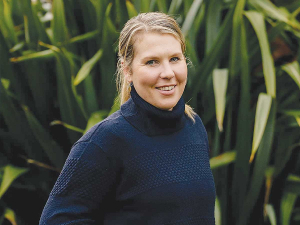LIC lifts half-year revenue on strong demand for dairy genetics
Herd improvement company LIC has posted a 5.2% lift in half-year revenue, thanks to increasing demand for genetics.
 Victoria Trayner is competing against Siobhan O'Malley and Corrigan Sowman for the one South Island seat on LIC's board.
Victoria Trayner is competing against Siobhan O'Malley and Corrigan Sowman for the one South Island seat on LIC's board.
A three-way battle is underway for one South Island seat on LIC’s board.
Three well-known dairy farmers – Siobhan O’Malley, Corrigan Sowman and Victoria Trayner — are fighting for the new seat.
Changes introduced in 2020 reduced the number of elected LIC directors from seven to six and the number of regions from four to two. After this year’s election, there will three directors each from the North Island and South Island.
Voting papers were sent to LIC shareholders last week: results will be announced at LIC annual meeting in Palmerston North on October 20.
O’Malley, the founding chair of Meat the Need charity, sees LIC as aligned with her “passion for being a sector ambassador” and long-term governance aspirations.
Her family farming interest, Pukeko Pastures, began in 2011 as a sharemilking business. It now owns a dairy farm milking 180 cows. She is a graduate of the Kellogg Rural Leadership Programme and previous sharemilkers’ representative with Federated Farmers.
As chair of Meat the Need, she engaged Silver Fern Farms, Miraka and Fonterra to partner with and sponsor the programme. O’Malley has helped lead the trust’s rapid growth to an expected product value of $10m next year.
Sowman draws from a number of South Island dairy farming leadership and representative roles. He says he’s motivated to join the LIC board as a way to continue contributing to the sector’s success while also strengthening his governance experience.
Sowman is the owner, director and business manager of Uruwhenua Farms, a 400ha dairy farm. His earlier career involved roles in farm research and consultancy. He is both a Nuffield Farming Scholar and Kellogg Rural Leadership Scholar.
He is the current farmer member on the Fonterra Sustainability Advisory Panel, a group providing independent advice to the Fonterra board.
Trayner draws from a broad agribusiness and education background and is motivated for the LIC role as an opportunity to “give back” through shareholder representation. She notes her close alignment to the co-operative values and focus on intergenerational value.
Trayner has extensive primary sector experience through her own and family farming enterprises, including dairy farms, pig farms, Angus beef stud and dairy bull run-off. She is currently a tutor in agribusiness and production management through AgriLearn and a director of Waimakariri Irrigation Limited.
Dairy Women's Network (DWN) has announced that Taranaki dairy farmer Nicola Bryant will join its Trust Board as an Associate Trustee.
Rural Women New Zealand (RWNZ) says it welcomes the release of a new report into pay equity.
Red meat exports to key quota markets enjoyed $1.4 billion in tariff savings in the 2024-25 financial year.
Remediation NZ (RNZ) has been fined more than $71,000 for discharging offensive odours described by neighbours as smelling like ‘faecal and pig effluent’ from its compositing site near Uruti in North Taranaki.
Two kiwifruit orchards in the Bay of Plenty and one in Northland are this year's finalists for the Ahuwhenua Trophy competition.

OPINION: A mate of yours truly reckons rural Manawatu families are the latest to suffer under what he calls the…
OPINION: If old Winston Peters thinks building trade relations with new nations, such as India, isn't a necessary investment in…